No products in the cart.
Sale
N-Acetyl Semax Amidate (CAS No. 2920938-90-3) | Biologically Active Peptide
Original price was: $28.00.$23.00Current price is: $23.00.
N-Acetyl Semax Amidate is a biologically active synthetic peptide with potential applications in neuropharmacology, peptide biochemistry, and molecular biology. It is used as a research tool in understanding peptide-mediated mechanisms and their therapeutic implications. For laboratory research use only.
Description
Product Description
N-Acetyl Semax Amidate is a synthetic biologically active peptide derived from modifications of the Semax peptide family, which is known for its neuroprotective and nootropic properties. As an amidated and acetylated peptide analog, N-Acetyl Semax Amidate displays structural stability and enhanced bioactivity in comparison to unmodified counterparts, making it an important research compound in peptide biochemistry and neuropharmacology.
Peptide analogs like N-Acetyl Semax Amidate are extensively studied due to their ability to interact with specific molecular targets in the nervous system. The Semax family of peptides originated from adrenocorticotropic hormone (ACTH) fragments, with structural modifications aimed at improving therapeutic potential. The N-acetylation and amidation modifications not only stabilize the peptide but also influence receptor-binding dynamics, enzymatic resistance, and bioavailability.
The research utility of N-Acetyl Semax Amidate is broad. It is commonly used in studies focused on neuroprotection, memory enhancement, learning processes, and neuroregeneration. Investigations suggest that Semax-derived peptides may modulate the expression of brain-derived neurotrophic factor (BDNF), influence glutamatergic neurotransmission, and regulate oxidative stress responses. These activities make N-Acetyl Semax Amidate particularly relevant in preclinical models of neurodegenerative diseases, ischemic injury, and stress-induced cognitive impairment.
Beyond neuroscience, N-Acetyl Semax Amidate serves as a general peptide research tool. Its stability and structural modifications enable detailed analysis of peptide folding, enzymatic resistance, receptor interactions, and intracellular signaling cascades. Peptide chemists can leverage this compound to study the effects of amidation and acetylation on peptide pharmacokinetics and pharmacodynamics.
In laboratory practice, N-Acetyl Semax Amidate is typically supplied as a lyophilized peptide powder, ensuring long-term stability under proper storage conditions. It is soluble in aqueous buffers such as PBS, as well as organic solvents like DMSO, making it adaptable to in vitro assays, cell culture experiments, and in vivo administration in animal models.
The biological significance of N-Acetyl Semax Amidate lies in its ability to act as both a structural analog of endogenous neuropeptides and a pharmacological agent in controlled experimental setups. Its contribution to understanding peptide-based neuroprotective mechanisms continues to support its widespread use in academic and industrial research settings.
In summary, N-Acetyl Semax Amidate represents a critical tool in biochemical and neuropharmacological research. With its combination of structural stability, bioactivity, and relevance to multiple experimental domains, it remains a versatile peptide for advancing knowledge in neuroscience, peptide chemistry, and therapeutic development.
Product Specifications
| Parameter | Details |
|---|---|
| Product Name | N-Acetyl Semax Amidate |
| CAS Number | 2920938-90-3 |
| Synonyms | Ac-Semax-NH2, N-Acetyl-Semax-amide |
| Molecular Formula | C___H___N___O___ (exact formula available upon request) |
| Molecular Weight | Available upon request |
| Appearance | White to off-white lyophilized powder |
| Purity | ≥95% (HPLC) |
| Form | Synthetic peptide, amidated and acetylated |
| Solubility | Soluble in water, PBS, DMSO |
| Storage Conditions | Store at -20°C; avoid repeated freeze-thaw cycles |
| Stability | Stable for 24 months lyophilized; 2–4 weeks in solution at 4°C |
| Applications | Neuroscience research, peptide biochemistry, pharmacological studies |
| Biological Activity | Neuroprotective, cognitive-modulating, antioxidant, peptide signaling regulation |
| Safety | For laboratory research use only; not for human or veterinary use |
The specifications highlight N-Acetyl Semax Amidate as a high-purity, research-grade peptide. Its dual modifications (acetylation and amidation) contribute to improved half-life, resistance to enzymatic degradation, and consistent biological activity. These properties are crucial for reproducibility in laboratory assays.
Mechanism of Action & Research Applications
N-Acetyl Semax Amidate exerts its effects primarily through neurotrophic and neuromodulatory pathways.
Mechanism of Action
Neurotrophic Modulation: Enhances expression of BDNF and NGF, supporting neuronal survival and growth.
Neurotransmission Regulation: Influences glutamatergic and dopaminergic systems, both of which are critical for cognition and motor control.
Antioxidant Action: Reduces oxidative stress markers, protecting neurons from reactive oxygen species damage.
Stress Response: Modulates HPA (hypothalamic-pituitary-adrenal) axis activity, stabilizing stress hormone levels.
Synaptic Plasticity: Enhances long-term potentiation (LTP), a key mechanism underlying learning and memory.
Research Applications
Neurodegenerative Diseases: Used to study therapeutic strategies for Alzheimer’s, Parkinson’s, and Huntington’s diseases.
Stroke and Ischemia Models: Investigated for its ability to reduce neuronal death following ischemic injury.
Cognitive Research: Provides insight into mechanisms of memory, attention, and learning.
Psychiatric Disorders: Explored for depression, anxiety, and stress-related disorders due to its regulatory effects on neurotransmission.
Peptide Chemistry: A model for studying the biochemical impact of acetylation and amidation on peptide stability and activity.
Oxidative Stress Studies: Used to examine how peptides mitigate free radical damage in neuronal systems.
By targeting multiple aspects of neuronal health and biochemical function, N-Acetyl Semax Amidate continues to support experimental approaches across neuroscience, molecular pharmacology, and peptide research.

Side Effects (For Reference in Research Models)
In research models, N-Acetyl Semax Amidate is generally well-tolerated. However, potential experimental side effects have been observed:
Neurological Changes: Alterations in locomotor activity, anxiety levels, or cognitive performance may occur depending on dose.
Metabolic Effects: Some studies suggest mild effects on glucose regulation and metabolic markers.
Behavioral Responses: Variations in stress resilience and emotional behavior in animal models.
Local Effects: Possible irritation at the site of administration in in vivo studies.
Dose Sensitivity: High doses may lead to non-specific receptor activation, producing off-target effects.
Experimental Considerations
Careful dose-response studies are recommended.
Long-term exposure should be monitored for adaptation or tolerance.
Combination with other peptides or neuroactive compounds requires controlled protocols.
Observed effects in animal models may not directly translate to humans.
These side effect profiles highlight the importance of responsible and controlled use of N-Acetyl Semax Amidate exclusively within laboratory settings.
Disclaimer
For laboratory research use only. Not for human or veterinary use.
Keywords
N-Acetyl Semax Amidate, Semax peptide analog, neuroprotective peptide, cognitive enhancer peptide, peptide for neuroscience research, amidated acetylated peptide, experimental neuropharmacology compound
Additional information
| Weight | 0.9 kg |
|---|---|
| Dimensions | 52 × 43 × 52 cm |
What is N-Acetyl Semax Amidate?
A biologically active synthetic peptide used in biochemical and neuropharmacological research.
What is its CAS number?
CAS No. 2920938-90-3.
What modifications does it have?
N-acetylation and amidation for enhanced stability and bioactivity.
What are its primary research uses?
Neuroprotection, memory studies, oxidative stress research, and peptide chemistry.
Is it soluble in water?
Yes, it dissolves in aqueous buffers and organic solvents.
How should it be stored?
Store lyophilized at -20°C; reconstituted solutions stable for short-term use.
Does it affect BDNF?
Yes, it is associated with increased BDNF expression in research models.
Can it be used in human therapy?
No, it is strictly for laboratory research only.
What is its purity?
≥95% confirmed by HPLC.
Is amidation important?
Yes, amidation improves peptide half-life and biological activity.


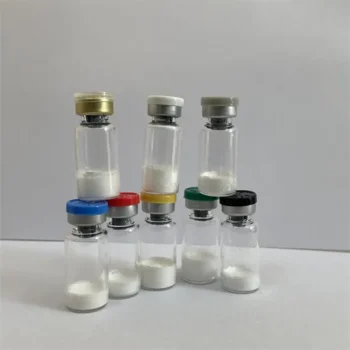


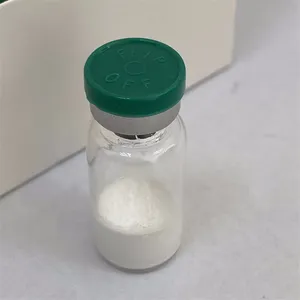

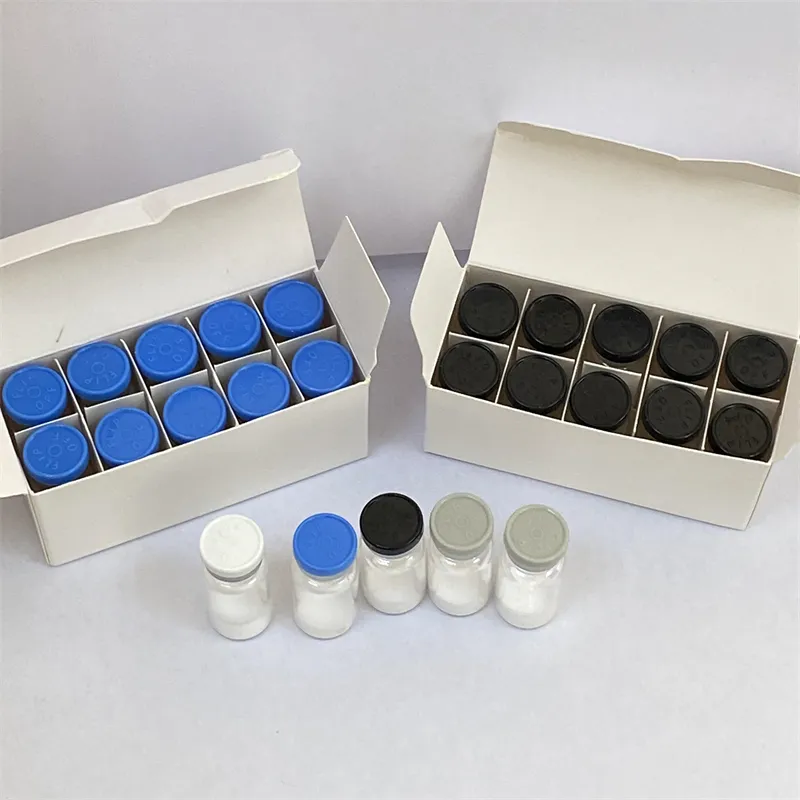

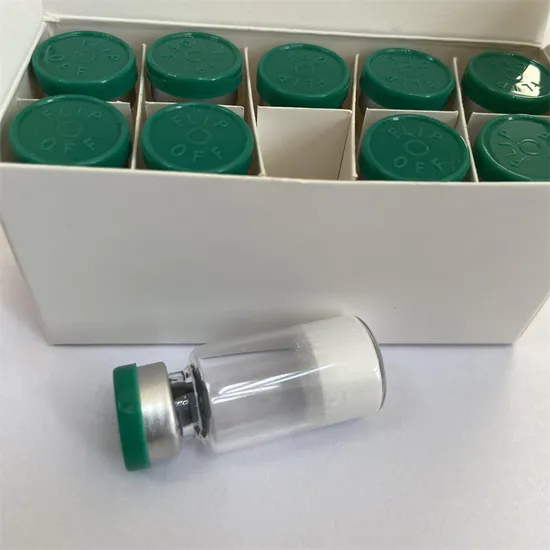
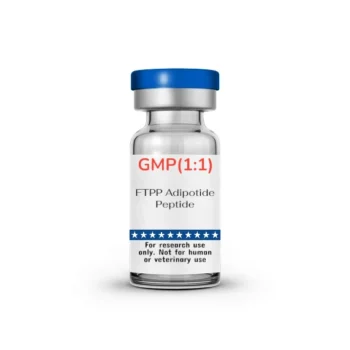
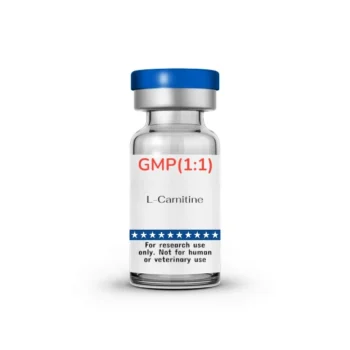
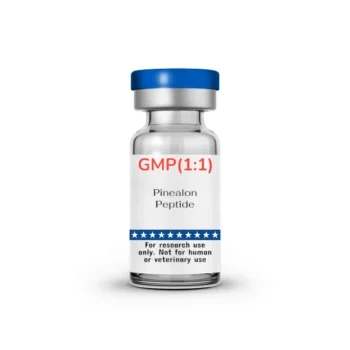


Reviews
There are no reviews yet.